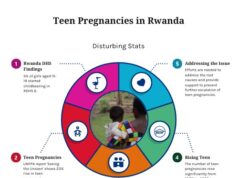By Kayitare Jean B.
In the last five years Rwanda had made tremendous traits in reducing the deaths attributed to Malaria. Despite all that of the recent past in different health facilities among the 15 districts in the country showed cases of drug resistance Malaria have been on the rise of which in those districts making it to a total of 88% of the infections. It is a concern for the Ministry of Health in Rwanda.
Malaria medicine resistance in Rwanda is a growing concern, with markers of resistance to artemisinin and lumefantrine increasing in recent years according to Rwanda BioMedical Center.
Since then the government has started deploying new drugs in a bid to fight malaria resistance to the existing medication, according to an official at Rwanda Biomedical Centre (RBC).
The World Health Organization (WHO) stated that Rwanda and other African countries are facing a threat from malaria parasites becoming resistant to drugs.
Threat to treatment
According to the World Health Organization (WHO), If left unchecked, up to 30% of malaria infections in Rwanda could be untreatable by the end of the decade.
The two anti-malaria drugs are dihydroartemisinin-piperaquine (DHAP), and artesunate-pyronaridine (ASPY). They are among the drugs recommended by the World Health Organization (WHO) for the treatment of complicated malaria among children and adults – under what it calls artemisinin-based combination therapies (ACTs).
Dr. Aimable Mbituyumuremyi, RBCs, Malaria and Other Parasitic Diseases Division, told The Press that the new anti-malaria drugs serve as alternatives to the commonly used Coartem in the treatment of the mosquito-borne disease that – in some instances – has put up resistance both in Rwanda and other countries.
Artemisinin resistance
In 2023, 17.5% of malaria patients in southern Rwanda had markers associated with artemisinin resistance, which is nearly double the rate in 2019. The PfK13 R561H mutation was the most prevalent, occurring in 9.0% of patients.
Dr Ndayininahaze Theophile, from La Croix Du Sud Hospital says, “we have been witnessing the cases of anti drug resistance Malaria cases in children under five in our hospital for the last eight (8) months since then we have been working in partnership with Rwanda Biomedical Center to address the issue. To date we have already received the first batch of the World Health Organizations (WHO) recommended medicines in our hospitals.”
What causes resistance to malaria drugs?
Resistance of malaria parasites arises from several factors, including overuse of antimalarial drugs for prophylaxis, inadequate or incomplete therapeutic treatments of active infections, a high level of parasite adaptability at the genetic and metabolic levels, and a massive proliferation rate that permits selected.
Despite intensive research extending back to the 1930s, when the first synthetic antimalarial drugs made their appearance, the repertoire of clinically licensed formulations remains very limited. Moreover, widespread and increasing resistance to these drugs contributes enormously to the difficulties in controlling malaria, posing considerable burden to economies and humanitarian challenges.
Resistance of malaria parasites arises from several factors, including overuse of antimalarial drugs for prophylaxis, inadequate or incomplete therapeutic treatments of active infections, a high level of parasite adaptability at the genetic and metabolic levels, and a massive proliferation rate that permits selected populations to emerge relatively rapidly.
What is the best antimalarial drug for resistant malaria?
Artemisinin-based combination therapy (ACT) is a combination of two or more drugs that work against the malaria parasite in different ways. This is usually the preferred treatment for chloroquine-resistant malaria. Examples include artemether-lumefantrine (Coartem) and artesunate-mefloquine.
Plans to combat the drug resistance malaria
Data accuracy: Ensure the accuracy of data from therapeutic efficacy studies to inform drug policy decisions.
Capacity building: Strengthen the capacity of national teams to generate high-quality data on drug efficacy and parasite resistance.
Vector control: Ensure optimal vector control coverage in priority areas.
The government wants to eradicate malaria by 2030.













